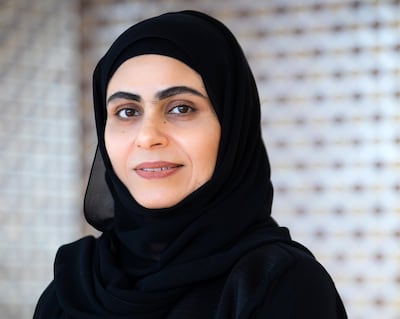There is confusion in the UAE on how to legally fundraise and donate to charity. Some individuals collecting both monetary and non-monetary donations have gone underground for fear of breaking regulations, including a cybercrimes law that makes fundraising online without prior approval punishable by imprisonment and/or a fine of up to Dh500,000.
But government authorities and fundraisers say strict laws are necessary to make sure the money is going to the right place.
“To do charity in Dubai has become difficult, but on the other hand, I do understand where [the authorities] are coming from,” says a woman, who declined to be named as she organises food donations at construction sites. “We’ve heard of a lot of people who have raised funds for charities and have actually disappeared with the money.”
There are still plenty of legal options to give to a cause or raise funds, from donation boxes to the newly launched YallaGive, the first licensed online donation and crowdfunding platform in the Middle East. Here is our guide on how to give to charity legally in the UAE.
What do the laws say?
As per Article 27 of the Federal Law No. 5 of 2012 on Combating Cybercrimes, it is illegal to call for, promote and collect donations online without first obtaining the proper permission and licensing from the relevant authorities. The penalty is either jail time of up to three years, according to Al Tamimi law firm, or a fine ranging from Dh200,000 to Dh500,000, or both.
Read More
• Everything you need to know about UAE's charity laws — and the dangers of donating to rogue sites
• Potential fund-raisers warned over Dubai's strict charity law
Furthermore, in 2015 the government of Dubai issued Decree No. 9 regulating the raising of donations, making it an offence to collect donations or advertise fundraising campaigns through any means without obtaining prior written approval from the Islamic Affairs and Charitable Activities Department (Iacad). Penalties for violating the decree include imprisonment of between one month and one year, and a fine of between Dh5,000 and Dh100,000.
“This decree was issued to address a growing practice whereby various non-registered and foreign charities directly promoted and collected donations without any permit or license,” says James Berry, managing director of UAE law firm James Berry & Associates.
Al Tamimi law firm said in an e-mailed statement: “The view of our lawyers is that donations made in good faith would not be punishable under this law.” However, the firm recommends that anyone donating to a charity looks for the approval from the department before sending money.
In 2016, Dubai Police arrested Australian-Briton Scott Richards for a Facebook post that linked to a US-registered charity supporting refugees in Afghanistan without first receiving permission from Iacad. The charges against him were later dropped.
How do you register a charity?
To set up a charitable organisation in the Emirates, UAE nationals can apply online to the Ministry of Community Development, while expatriate residents need to submit their application to the ministry through their respective embassy or consulate.
The Community Development Authority in Dubai regulates and provides licensing services to non-profit civil society organisations. Humanitarian organisations and commercial companies can register and get licensed through International Humanitarian City (IHC) in Dubai, an independent free zone authority that currently has 81 members.
To raise money, you must obtain approval from the General Authority of Islamic Affairs and Endowments at the national level or from Iacad in Dubai. An Iacad spokesperson said that an approval or rejection is given within 15 working days, and that there are currently 16 charities licensed with the department.
“For any funds raised through an approved event, the Emirates Red Crescent is the only entity authorised legally to transfer funds from the UAE to other countries,” says Mr Berry. “If the charity is incorporated abroad and the licensed branch here, the process also requires a no-objection letter from the embassy of the country of incorporation.”
How do you fundraise without registering as a charity?
Registering as a charity may not be an option for everyone. The woman who organises food donations says: “Obviously for us to legalise our charity, it’s not possible. We need an office, we need a license. It’s a lot of money and it’s just not feasible for us small mums who do just a little bit of charity work.”
Recognising the legal challenges in raising money for a cause, Abdulla Al Nuaimi founded YallaGive, the first licensed online donation and crowdfunding platform in the Middle East. Mr Al Nuaimi has worked in fundraising for the last 12 years for registered charities that include the World Wildlife Fund, Prevention of Blindness Union and Sightsavers.
“We only allow official charities to register on the platform,” says Mr Al Nuaimi, who is also director of the global International Fundraising Consultancy in the GCC region. “Donors can donate in a safe and convenient manner because we will make sure every single dirham is going to the right campaign.”
YallaGive, which launched just last month, has 20 campaigns so far raising money for charities registered in the UAE, including Penny Appeal, SOS Children’s Villages International and Medicins San Frontieres/Doctors Without Borders UAE. Similar to crowdfunding websites, like GoFundMe and Kickstarter, YallaGive charges donors a 4 per cent fee.
Mr Al Nuaimi says YallaGive allows individuals to fundraise legally and safely through the use of blockchain technology. Raising money for organisations not registered in the UAE, even through established crowdfunding websites, is not allowed.
“I’ve seen campaigns on other platforms by individuals from the UAE to support overseas charities — which is illegal, but they were not aware of that,” says Mr Al Nuaimi, 34, a Syrian who has lived in the UAE for nearly 18 years.
Read More
• How UAE Muslims donate their zakat during the holy month
• Apply your commitment to Ramadan to your business
• Ramadan spirit: Generous readers clear single mother's debts after The National plea
If not registered themselves, individuals, as well as schools and companies, must work with charities licensed in the UAE for fundraising.
For example, Emirates Islamic bank, while not a registered charity, has its own Charity Fund that works with various charitable and humanitarian organisations, including the Khalifa bin Zayed Al Nahyan Foundation, Sharjah Charity International, the Tarahum Charity Foundation and Beit Al Khair.
“This money is to be given to the people who are eligible for it and if you don’t have a list of authorised charity organisations, people will jump in between and everybody will try to play the same role and they will misuse the distribution of the funds, so it has to be given to a well-trusted establishment,” says Awatif Al Harmoodi, general manager of operational governance at Emirates Islamic. “When the charity is approved, it means proper due diligence is done.”
Is there a difference between collecting non-monetary and monetary donations?
This is a grey area. People giving away food and sending aid, such as clothes and medicine, feel they are playing it safe. As the woman who distributes food put it: “You know I’m not going to run away with a bag of bananas." But just in case, she shut down the group’s Facebook page and relies on word of mouth for volunteers.
Mr Berry says: “While the law only makes reference to donations as a monetary contribution and not items, it is understood that Iacad views donations to include both money and non-monetary items as they have value attached to them.”
Iacad confirmed that donations include any type, whether monetary or non-monetary.
How do you donate legally?
Before donating, it is important to check whether the charity is licensed and has a permit number. Iacad and IHC, as well as the official UAE government portal, publish lists of registered charities on their websites.
Charities often accept donations online, through bank accounts, via text messages, by phone and in person. There are cash donation boxes in shopping malls and supermarkets, and used items donation boxes throughout the UAE going to charities such as Beit Al Khair and Dar El Ber.
Mr Al Nuaimi says there is no dearth of options when it comes to giving charity in the UAE.
“It’s not that it’s not allowed — it’s regulated,” says Mr Al Nuaimi. “You just have to follow the rules.”




